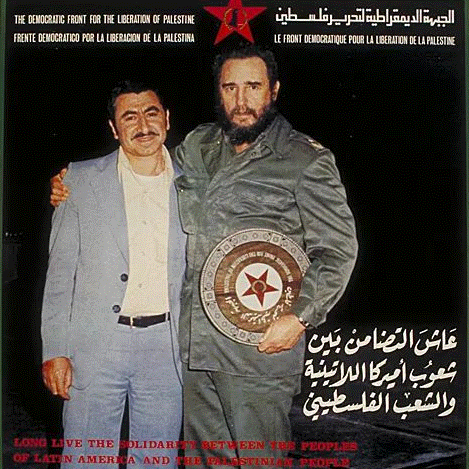this post was submitted on 05 Feb 2024
61 points (100.0% liked)
GenZedong
4832 readers
171 users here now
This is a Dengist community in favor of Bashar al-Assad with no information that can lead to the arrest of Hillary Clinton, our fellow liberal and queen. This community is not ironic. We are Marxists-Leninists.
See this GitHub page for a collection of sources about socialism, imperialism, and other relevant topics.
This community is for posts about Marxism and geopolitics (including shitposts to some extent). Serious posts can be posted here or in /c/GenZhou. Reactionary or ultra-leftist cringe posts belong in /c/shitreactionariessay or /c/shitultrassay respectively.
We have a Matrix homeserver and a Matrix space. See this thread for more information. If you believe the server may be down, check the status on status.elara.ws.
Rules:
- No bigotry, anti-communism, pro-imperialism or ultra-leftism (anti-AES)
- We support indigenous liberation as the primary contradiction in settler colonies like the US, Canada, Australia, New Zealand and Israel
- If you post an archived link (excluding archive.org), include the URL of the original article as well
- Unless it's an obvious shitpost, include relevant sources
- For articles behind paywalls, try to include the text in the post
- Mark all posts containing NSFW images as NSFW (including things like Nazi imagery)
founded 4 years ago
MODERATORS
you are viewing a single comment's thread
view the rest of the comments
view the rest of the comments

Julian Assange, through WikiLeaks, released various documents, videos, and diplomatic cables that provided the public with information on a range of topics, including the practices of the United States military and government. Among the most notable releases were:
Collateral Murder Video (April 2010): WikiLeaks published gun camera footage of a July 2007 airstrike in Baghdad in which Iraqi journalists were killed by an Apache helicopter, along with other civilians. The video raised significant public concern about the conduct of U.S. forces in Iraq, with many people viewing the incident as a war crime.
Afghanistan War Logs (July 2010): These were a compilation of more than 76,900 documents that detailed the war in Afghanistan. The logs included reports of civilian casualties and evidence of the challenges faced by soldiers on the ground, which were not widely reported in the public domain.
Iraq War Logs (October 2010): This release contained nearly 400,000 military logs from the Iraq War, which also documented civilian deaths and instances of torture by Iraqi forces that were known to the U.S. military.
CableGate (November 2010): WikiLeaks released a trove of diplomatic cables that included candid assessments of foreign leaders and blunt descriptions of U.S. diplomacy.
Some of these disclosures did reveal information that many people, including human rights activists and journalists, argue exposed potential war crimes and abuses of power. Critics argue that the release of this information was in the public interest, as it provided transparency regarding matters that have significant moral, legal, and political implications.
However, the U.S. government has argued that the release of classified information by WikiLeaks endangered lives by exposing the identities of informants and compromising national security. This has been the basis for the legal actions taken against Assange, including his indictment on charges of conspiracy to commit computer intrusion, rather than the act of publishing sensitive material.
The debate around Assange's actions involves complex discussions about the balance between national security, the public's right to know, and the protection of whistleblowers versus the legal boundaries of classified information.
Hmmm I see that the robot didn't say anything about jurisdiction. Assange isn't American nor was he on American territory when he published the information. Siding with the US government on this case is effectively giving American courts the power to govern the entire planet.